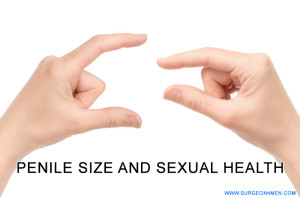Sexual Health Concerns and Problems
Sexual health encompasses a number of variables and factors that can affect the personal, social, psychological, reproductive and professional aspects of your life. According to the latest bulletin released by World Health Organization (1), sexual health concerns can be discussed under these parameters:
- Sexually Transmitted Diseases: The overall economic cost/ burden of sexually transmitted diseases in United States exceeds $16 billion each year. According to the recent publication released by Centers for Disease Control (2), more than 20 million cases of sexually transmitted infections were reported in in year 2013 alone, making the overall prevalence to 150 million cases. Most common infections include; human papillomavirus (HPV), herpes simplex virus type 2 (HSV-2), chlamydia, human immunodeficiency virus (HIV), syphilis, trichomoniasis, hepatitis B virus (HBV) and gonorrhea.
 Sexual Violence: There are several forms of sexual offences and violent activities, such as sexual abuse, rape, sexual harassment (at work, in school or in other settings). According to the latest statistics reported in the peer reviewed journal Nursing for Women’s Health (3), investigators reported that at least one in every 20 females experience some form of sexual violence in her lifetime. WHO identifies sexual violence as a major public health sexual concern and vows to introduce interventions to reduce the risk in general population.
Sexual Violence: There are several forms of sexual offences and violent activities, such as sexual abuse, rape, sexual harassment (at work, in school or in other settings). According to the latest statistics reported in the peer reviewed journal Nursing for Women’s Health (3), investigators reported that at least one in every 20 females experience some form of sexual violence in her lifetime. WHO identifies sexual violence as a major public health sexual concern and vows to introduce interventions to reduce the risk in general population.- Genital Mutilation: Any form of genital mutilation (especially in females) can impact the overall course of sexual and reproductive life. The current prevalence of females who are living with the after-effects of genital mutilation is huge (approximately 915 million females in Africa alone). Additionally, approximately 100 million females are subjected to one or more forms of genital mutilation (4). Although, the prevalence of this practice is fairly low within United States; yet due to immigration and other forms of relocation, a fair number of victims are also living in United States.
Other sexual health concerns that are in the agenda of WHO are:
- Impact of chronic medical, metabolic and psychiatric diseases on the sexual performance and reproductive life (such as uncontrolled diabetes, chronic hypertension, hypercholesterolemia or obesity etc.)
- Impact of surgical procedures or chronic injuries on the sexual life (such as spinal or inguinal surgeries, injury to inguinal or pelvic region, neurological issues etc.)
- Impact of physical or mental disabilities on the overall sexual relations and relationships
- Sexual orientation and preferences
Common Sexual Problems in Males
Based on latest statistics, most frequently reported sexual problems in males are:
 Erectile Dysfunction: Erectile dysfunction refers to a partial or complete loss of an individual’s capacity to copulate successfully. Problems like ED have a multifactorial origin and may impact all aspects of the individual’s life. There are a number of practical interventions that can be employed to restore the erectile function (after correct identification of the cause)
Erectile Dysfunction: Erectile dysfunction refers to a partial or complete loss of an individual’s capacity to copulate successfully. Problems like ED have a multifactorial origin and may impact all aspects of the individual’s life. There are a number of practical interventions that can be employed to restore the erectile function (after correct identification of the cause)- Low Libido: Loss of interest in the sexual activities or significant alteration in the normal frequency of sexual intercourse can be an outcome of chronic stress, unhealthy lifestyle, marital/ relationship conflicts or an organic illness. In either case, it is absolutely important to identify the change in your sexual behavior in order to take optimal measures for the resolution of symptoms.
- Ejaculatory Issues: Ejaculation marks the completion of the act of intercourse. It is not only required for conception but is also required for the release of tension, stress and emotional pressure. Ejaculatory issues range from, premature ejaculation to retrograde ejaculation and delayed ejaculation. Most cases of ejaculatory dysfunction responds well to the sexual retraining and counseling, but in some cases, medical or surgical intervention becomes necessary.
- Low Testosterone: Testosterone is the most important and vital hormone that is required for primary and secondary sexual characteristics. Additionally, normal testosterone levels are also recommended for the maintenance of normal libido and sexual functions. Although testosterone levels declines with advancing age; but the rate is generally low and no immediate symptoms are observed in individuals unless testosterone secretion rate decreases substantially.
- Infertility/ Sterility: Inability to procreate or make a woman pregnant is referred to as infertility. A lot of males experience fertility issues but most cases are mild and responds well to conservative managements. In advanced cases or sterility, other interventions can be employed such as In-vitro fertilization, surrogacy, artificial insemination etc.
It is imperative to mention that a significant percentage of male population suffers from sexual health concerns and disorders. Fortunately, most cases are mild and does not require extensive surgical intervention or management. If you are experiencing disturbing symptoms or sexual dysfunction, make an appointment with your primary care provider to discuss the concerns.
References:
- http://www.who.int/reproductivehealth/topics/sexual_health/issues/en/
- http://www.cdc.gov/std/stats/sti-estimates-fact-sheet-feb-2013.pdf
- 3. Long, D. C. (2014). Addressing sexual violence through preventive nursing practice. Nursing for women’s health, 18(6), 476-484.
- Yirga, W. S., Kassa, N. A., Gebremichael, M. W., & Aro, A. R. (2012). Female genital mutilation: prevalence, perceptions and effect on women’s health in Kersa district of Ethiopia. International journal of women’s health, 4, 45.
- Serefoglu, E. C., Yaman, O., Cayan, S., Asci, R., Orhan, I., Usta, M. F., … & Kadioglu, A. (2011). Prevalence of the complaint of ejaculating prematurely and the four premature ejaculation syndromes: results from the Turkish Society of Andrology Sexual Health Survey. The journal of sexual medicine, 8(2), 540-548.

